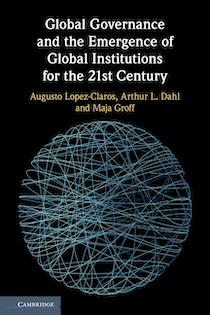The world today is facing unprecedented challenges of governance far beyond what the United Nations (UN), established 75 years ago, was designed to face. The grave effects of global climate change are already manifesting themselves, requiring rapid, far-reaching, and unprecedented changes in all aspects of society to arrest catastrophic and probably irreversible consequences. Science has uncovered the frightening and rapid collapse in global biodiversity, threatening ecosystems across the planet that maintain the correct functioning of the biosphere, essential to human life. But there is more; there are other global catastrophic risks. There is today a diminished faith in our political leaders and the institutions that underpin our systems of governance; public disillusionment with hyper-partisan politics and willingness to believe populist promises; disturbingly high levels of income inequality; still much too persistent and widespread human rights violations; and the spread of corruption, coinciding with the rise of autocratic leaders, often intent on awakening the voices of nationalisms which were so destructive during past centuries. The recent rejection by some nations of the benefits of multilaterism and international cooperation, which have been at the center of the postwar global order, has heightened the risks of fundamental instabilities that could precipitate a range of major crises, disregarding the lessons of the past.
Global Governance and the Emergence of Global Institutions for the 21st Century




